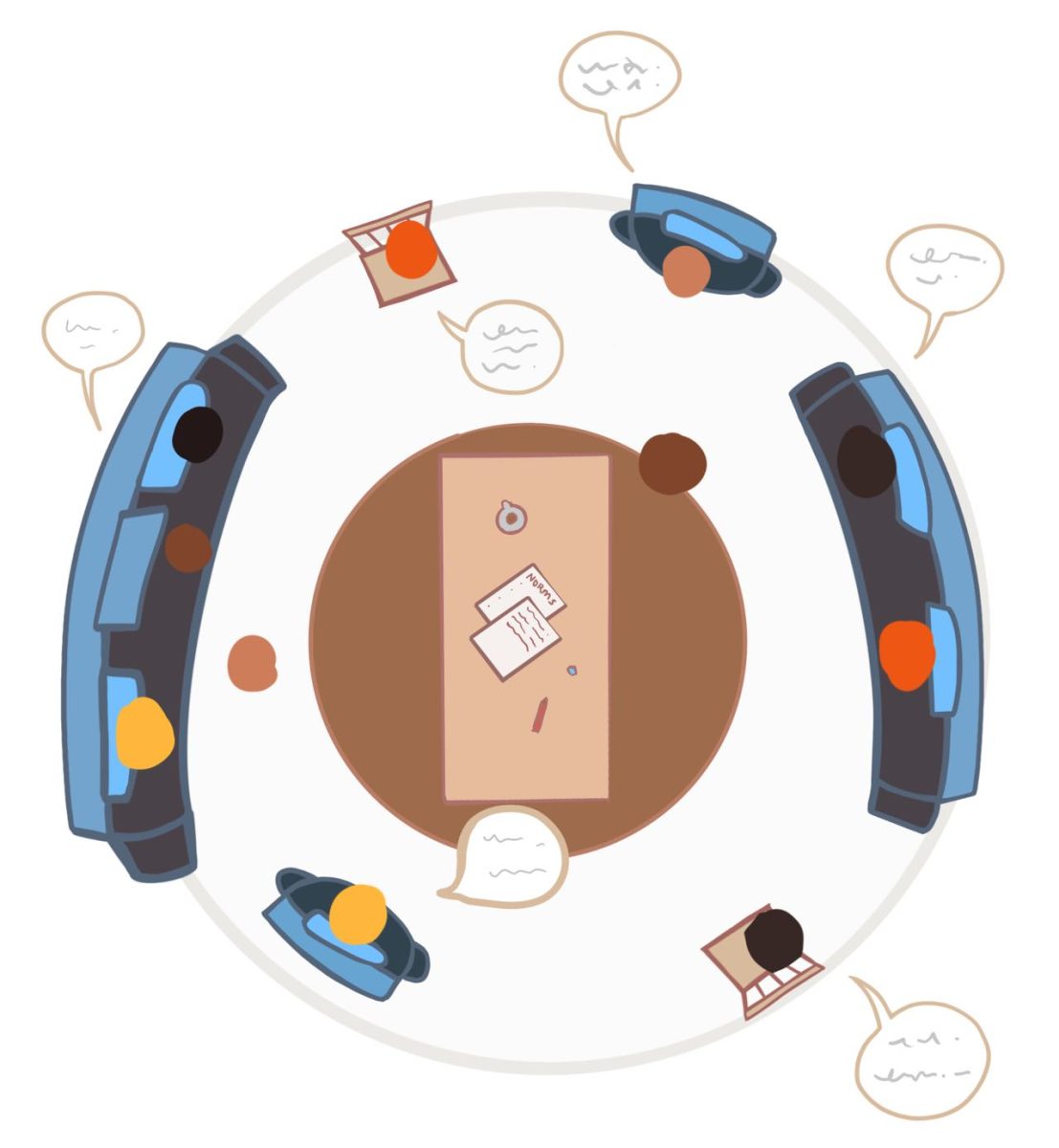At Groton, we preach that our small student body allows us to form meaningful and personal relationships. However, is Groton’s community actually tightly woven? Do students venture outside of their friend groups to engage in conversations with people they’ve never talked to? By holding community gatherings, students are pushed to step outside their comfort zones to explore things about one another as well as themselves. Although students might be disgruntled in the moment about stepping away from their work, forging a community through discussions is much more valuable in the long run.
Sravani Sen-Das, Dean of Diversity, Inclusion, and Belonging (DEI), explains that the purpose of community gatherings is to “share narrative-based stories while talking about our differences in beliefs and values and stepping out of our comfort zones.” When we share our differences, we are able to connect with one another through our backgrounds and experiences. A vital part of our curriculum is recognizing the diversity in our school and accepting our differences. “By keeping the community gatherings within the dorms, we are bolstering the residential life and intentionally building a community through norms and conversations, which is a key part of our education,” said Ms. Sen-Das.
These gatherings teach students to be more open-minded, which is something a textbook cannot teach. Strengthening relationships beyond immediate friend groups is essential to forming bonds that will serve us in the future. However, many students are reluctant to attend these gatherings because they feel it’s just another required activity. In order to prevent this attitude from being ingrained in the mentality of our student body, it’s necessary to look past the surface when participating in these exercises. Our Groton education isn’t transactional. Groton is not only about studying to get good grades and attend a certain college. For some, it’s easy to get tangled in the “grindset,” stay trapped in our respective bubbles and lose focus of what really matters. However, part of the Groton experience is developing skills such as communication and critical thinking, which will benefit us in the real world.
Once we intentionally engage with our peers, we begin to accept one another and be more understanding. It only takes listening to someone else’s story to learn about them in a different light. “I think that a lot of times we forget that we all have lives outside of Groton, and the community gathering enabled me to think outside of the Groton bubble,” said Jenny Polynice ’25, “I just wish we had more time together or maybe even the opportunity to switch up the groups.” Although these conversations may feel uncomfortable or awkward, they don’t have to be overly elaborate or thought-provoking. “While students may feel pressured to say something deep or meaningful, it’s often the simple anecdotes that connect us,” said Luisa Garciarramos Petricioli ’24.
As Ms. Sen-Das said, “Inclusivity isn’t just a buzzword. It needs to be something that Groton actively works towards and incorporates into all aspects of our school.”








